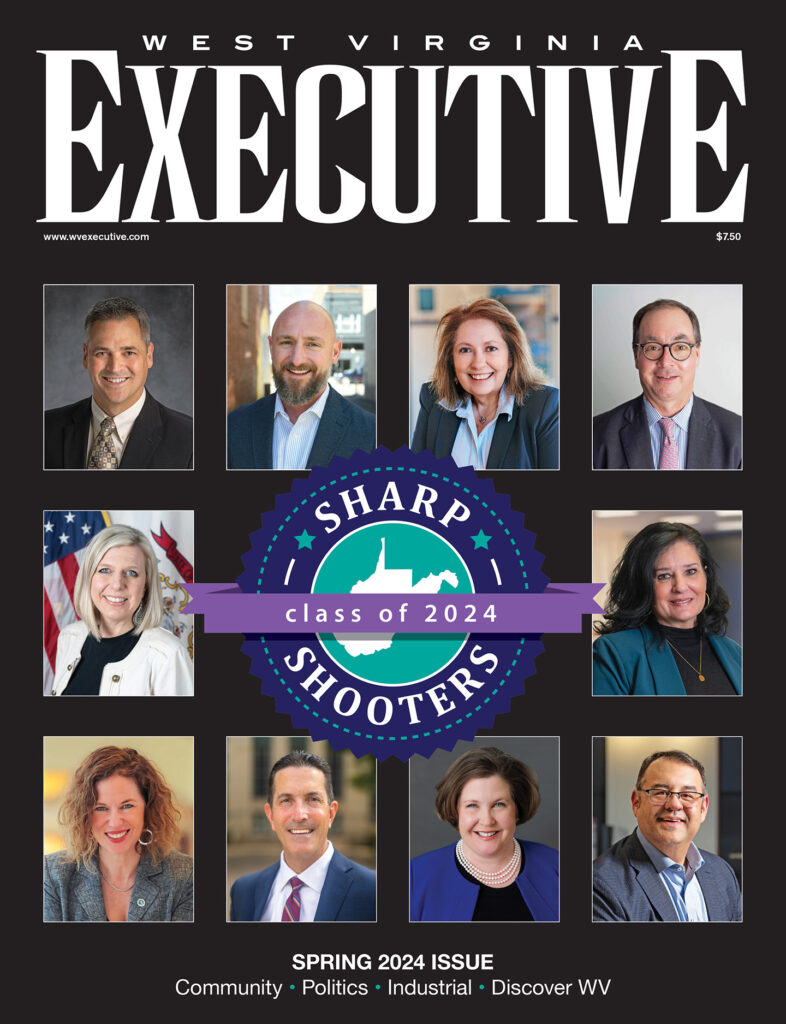 By Cullen Naumoff
By Cullen Naumoff
Local educators now have a new tool to help prepare today’s students for tomorrow’s opportunities thanks to the Charleston Area Alliance (CAA).
The Educator|Industry Institute (E|II), launched in July 2012, gives educators an inside look at the operations and career possibilities within the region’s industries, including energy, chemical and automotive. The goal is to help educators develop curricula that align with opportunities available in the region and develop relationships for future partnerships and/or internships for students.
The inaugural E|II class included 12 educators representing diverse educational backgrounds. Representatives from Capital High School, Winfield High School, Charleston Catholic High School, Charleston Montessori, Kanawha Valley Community & Technical College (KVCTC) and the University of Charleston all took part in the class. The educators were each paid a $500 stipend upon completing the class, which was funded by the Greater Kanawha Valley Foundation.
E|II grew out of Vision 2030, the alliance’s 20-year plan for economic development and community enhancement. Vision 2030 was established by more than 400 diverse stakeholders who brought their individual expertise to chart a course for sustainable job creation.
Throughout the Vision 2030 planning process, CAA heard from many business leaders who expressed concerns about attracting and retaining employees for career opportunities in the region. “It became clear that educators and industry professionals were not connected,” says Matt Ballard, president and CEO of CAA. “E|II bridges that gap and provides a forum for these key stakeholders to sit at the same table.”
“A strong economic roadmap can only be enhanced and realized through a robust and aligned education strategy,” Ballard explains. “Work force development in its broadest sense relies on industry and education stakeholders communicating with each other.”
Six out of the eight days of the inaugural session focused on understanding six different industry sectors and gaining insight to skills necessary to be successful in a particular field. Educators attended seminar-style presentations in the morning, which were followed by on-site visits to area businesses. More than 50 industry professionals met with the educators to provide first-hand information and answer questions.
The E|II 2012 focused on jobs in the following sectors: innovation/R&D, chemical, automotive, energy, entrepreneurship and health care. The class visited 14 industry sites including the Toyota plant in Buffalo, Bayer CropScience in Institute, Mountain View Solar Array at the Hurricane Wastewater Treatment Plant, and Mission Savvy’s Organic To Go and the Charleston Area Medical Center’s Medical Simulation Lab, both located in Charleston.
The final two days of the class were spent in sessions called Communities of Practice, which gave educators the ability to reflect on information they absorbed over the previous six days and envision how they would apply this information in their classrooms. These discussions were facilitated by Sherri Nash of the West Virginia Department of Education and Hallie Dunlap of the University of Charleston.
Members of the inaugural E|II class said they were impressed with the institute and the educators and industry professionals.
“This institute was a phenomenal experience for me, and the interfacing with industry leaders and networking with fellow attendees was invaluable,” says Charleston Montessori Co-director Susanne Coffield. “Curriculum enhancements at Charleston Montessori will definitely flow from the information, experience and contacts gleaned.”
Industry leaders also found value in the program. John Duda, director of the strategic center for the Natural Gas and Oil National Energy Technology Laboratory (NETL), says he valued the direct line of communication to educators. “Participation in the institute was truly a rewarding experience. It was clear that the participants are passionate about education and providing the resources that will allow West Virginians to secure quality jobs across all sectors of the shale gas industry. The program was thoughtfully developed and I’m pleased that the NETL was invited to discuss employment opportunities in the area of research as well as the industry as a whole.”
CAA will host a reunion of the 2012 E|II class of educators in November 2012. Ballard says the alliance will continue to cultivate the relationships that were built during the class and will follow up with how educators have applied information garnered during E|II in their classrooms.
Dates for 2013 E|II will be announced at the November reunion. Ballard says the alliance aims to recruit up to 25 educators to participate in the class, which will begin next summer.
For more information about the Educator|Industry Institute and educator recruitment, contact the author at CNaumoff@charlestonareaalliance.org.
About the Author
 Cullen Naumoff is an Ohio native who earned a degree in industrial engineering from The Ohio State University. After graduation, she moved to New York City where she was a Teach for America corps member and taught middle school math and science for two years. Naumoff went on to study at Columbia University where she earned a master’s degree in public administration with a focus in environmental science and policy. While at Columbia, she worked with both the United Nations and the New York City Mayor’s Office of Long-Term Planning and Sustainability. After graduation, she moved to Pittsburgh to take a role as Bayer Corporation’s assistant sustainability strategist. Through a serendipitous series of events, her job at Bayer led her to Charleston where the Charleston Area Alliance found her and enlisted her help with Vision 2030, the Charleston Area Alliance’s 20-year economic development strategic plan.
Cullen Naumoff is an Ohio native who earned a degree in industrial engineering from The Ohio State University. After graduation, she moved to New York City where she was a Teach for America corps member and taught middle school math and science for two years. Naumoff went on to study at Columbia University where she earned a master’s degree in public administration with a focus in environmental science and policy. While at Columbia, she worked with both the United Nations and the New York City Mayor’s Office of Long-Term Planning and Sustainability. After graduation, she moved to Pittsburgh to take a role as Bayer Corporation’s assistant sustainability strategist. Through a serendipitous series of events, her job at Bayer led her to Charleston where the Charleston Area Alliance found her and enlisted her help with Vision 2030, the Charleston Area Alliance’s 20-year economic development strategic plan.


